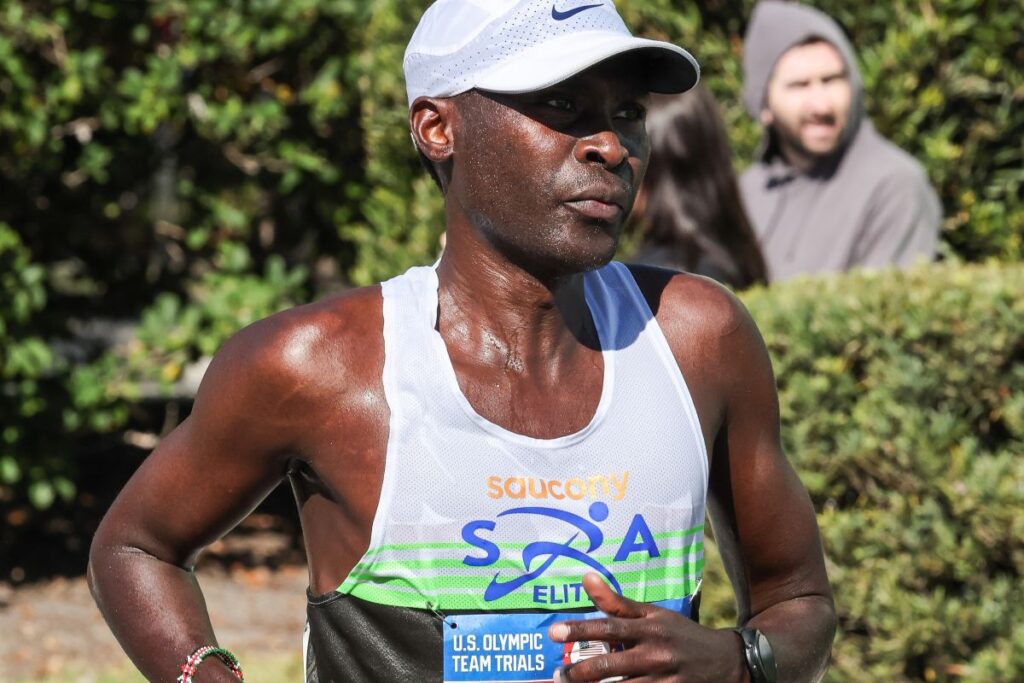Shadrack Biwott’s Doping Case: An In-depth Examination
American marathoner Shadrack Biwott, renowned for his remarkable career culminating in a seventh-place finish at the 2016 U.S. Olympic Marathon Trials and a third-place finish at the prestigious 2018 Boston Marathon, has found himself at the center of a doping scandal. In early 2024, Biwott tested positive for the performance-enhancing drug erythropoietin (EPO) and has since been handed a four-year suspension by the U.S. Anti-Doping Agency (USADA).
The Positive Test
Biwott, who was born in Kenya and became a naturalized U.S. citizen, underwent a routine test out of competition on January 25, 2024. This was just days before the critical U.S. Olympic Marathon Trials set to take place in Orlando, Florida. Unfortunately for Biwott, he dropped out of the race after covering 15 miles (24 km). The confirmation of his positive EPO test reached USADA on February 23, leading to an immediate provisional suspension.
Independent Arbitrator Imposes Four-Year Sanction on Track & Field Athlete Shadrack Biwott for Anti-Doping Rule Violation https://t.co/HCwdplXbir
— USADA (@usantidoping) August 27, 2025
The Investigation Process
Biwott promptly requested an analysis of his B sample, which was tested again and came back positive for EPO on March 18, 2024. This marked a significant turning point in the case. An adverse analytical finding was confirmed through these tests, with EPO being recognized as a banned substance under the World Anti-Doping Agency (WADA) code due to its capability to enhance endurance performance by boosting the body’s oxygen-carrying capacity.
The arbitration process took nearly 18 months as the arbitrator allowed for a delay in the hearing while Biwott investigated the origins of the positive test result. Despite his claims that the laboratory analysis was flawed, the integrity of the test was corroborated by four independent scientists from around the globe, all confirming the same result: Biwott’s sample tested positive for EPO.
Consequences of the Suspension
Biwott’s four-year suspension, retroactively effective from February 23, 2024, also implies disqualification from all results from January 25, 2024, onwards. This includes the forfeiture of any medals, points, and prize money accrued during that period. By the time the suspension concludes in 2028, Biwott will be 43 years old, potentially ending his competitive career in marathon running.
Implications for the Sport
The ramifications of Biwott’s doping case extend beyond his personal career. The incident raises critical questions about the state of integrity in long-distance running and how governing bodies like USADA enforce anti-doping regulations. EPO use has been a longstanding concern within endurance sports due to its ability to artificially enhance performance, leading to an ongoing battle against doping in athletics.
Looking Ahead
As the athletics community processes the fallout from Biwott’s case, it serves as a reminder of the rigorous standards athletes must meet. The backlash against doping not only seeks to maintain fair competition but also protects the reputation of marathon running, which has gained significant popularity across the United States and the world. As events move forward, maintaining vigilance in testing protocols will be crucial for the sanctity of the sport.
Conclusion
The suspension of Shadrack Biwott from competitive marathon running encapsulates the ongoing struggle within athletics to combat doping and uphold fair play. As potential young athletes look up to successful figures like Biwott, it becomes essential to emphasize integrity in sport and the potential consequences of rule violations. While the journey ahead for Biwott remains uncertain, the lessons learned from this incident will be pivotal for the future of marathon running.
